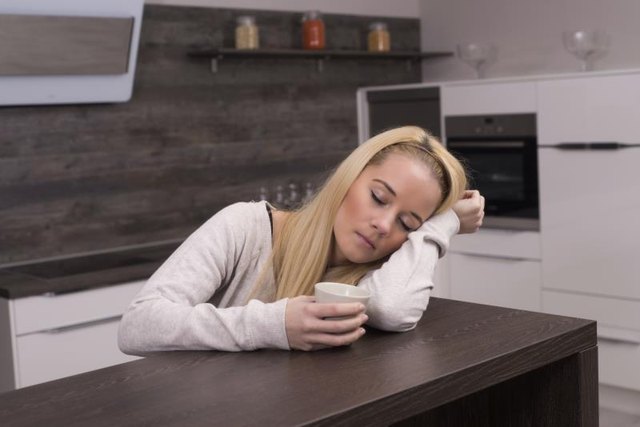
Because caffeine is a powerful psychoactive drug, it can cause some unpleasant side effects, including sleep disturbances. Caffeine directly stimulates brain activity, even during sleep, which can lead to nightmares. It can also cause or worsen nightmares indirectly through its effects on the quality of your sleep. If you experience nightmares for no apparent reason, your afternoon cup of coffee might be the culprit.
Caffeine and Sleep Quality
Caffeine stimulates your nervous system. It also hinders the neurotransmitter that tells your brain when you should feel sleepy, explains Harvard Medical School’s Division of Sleep Medicine. These functions explain why caffeine makes you feel awake and alert. But if the caffeine remains in your system, it can cause heightened brain activity even while you sleep. Because your brain keeps working when you are asleep but also can’t think logically — since it lacks the guidance of your consciousness — it can create bizarre and frightening dreams.
Because your brain struggles to relax fully, you experience less deep sleep, in which your brain activity slows, and more light sleep, which is when dreams occur. Because you remain in the dreaming stage longer, your brain has more time to create nightmares.
Because your brain struggles to relax fully, you experience less deep sleep, in which your brain activity slows, and more light sleep, which is when dreams occur. Because you remain in the dreaming stage longer, your brain has more time to create nightmares.
Caffeine and Stress
Caffeine stimulates the production of cortisol, the hormone that causes stress, reports a 2005 study in the journal “Psychosomatic Medicine.” This stimulation offers the significant advantage of helping you feel alert and focused, but it can also make you feel fretful, especially if you consume a lot of caffeine. Experiencing stress makes you more likely to have nightmares, explains MedlinePlus.
Insufficient sleep can also cause or worsen stress; since caffeine decreases the quality of your sleep, it can also lead to nightmares in this indirect manner.
Insufficient sleep can also cause or worsen stress; since caffeine decreases the quality of your sleep, it can also lead to nightmares in this indirect manner.
Caffeine and the Sleep Cycle
Caffeine hinders the process of falling asleep, causes you wake more often throughout the night, and prevents you from sleeping deeply and peacefully. Overall, having caffeine in your system at night means getting worse sleep for fewer hours, concludes the Johns Hopkins Bayview Medical Center. Because insufficient or low-quality sleep makes you feel tired, it also makes you more likely to crave caffeine, including later in the day. Drinking caffeine later in the day then worsens your quality of sleep that night. This frustrating cycle — more caffeine and worse sleep — increases your chance of nightmares even further.
Caffeine and Insomnia
Because caffeine disturbs your sleep patterns, it can cause insomnia. Insomnia can then cause anxiety in two ways: you feel irritable as a result of insufficient sleep, and you feel stressed about the insomnia itself. Anxiety, in turn, increases the likelihood that you’ll experience nightmares once you finally get to sleep.
This cycle can follow another pattern too. Caffeine can cause anxiety, which can cause nightmares; if you fear the nightmares, then you may begin to dread bedtime, which can lead to insomnia.
This cycle can follow another pattern too. Caffeine can cause anxiety, which can cause nightmares; if you fear the nightmares, then you may begin to dread bedtime, which can lead to insomnia.
What to Do
To avoid caffeine-induced nightmares, don’t drink caffeine in the afternoon. Most importantly, avoid caffeine in the four to eight hours before bedtime. If you’re sensitive to caffeine, avoid it for a full 12 hours before you plan to sleep.
www.livestrong.com





No comments:
Post a Comment